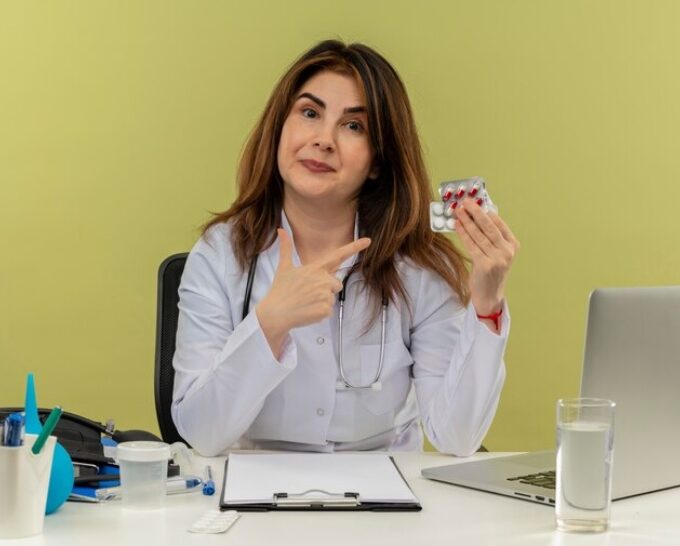The food we eat is central to how healthy and energized we feel. As science continues to uncover the connections between diet and overall health, more effective solutions are emerging to address individual dietary needs. Whether it’s fighting diseases, improving energy levels, or boosting immunity, these advancements are helping people achieve better health outcomes through smarter food choices.
This article explores how modern science is reshaping the way we approach eating and wellness. From personalized meal plans to sustainable food innovations, each step forward is bringing us closer to healthier lives. Below are some of the most significant ways scientific progress is driving these changes.
1. Personalized Nutrition: Tailoring Diets to Individual Needs
Personalized nutrition is one of the most exciting developments in the field of health science. Instead of following one-size-fits-all diets, individuals can now base their eating habits on their unique genetics, lifestyle, and health goals. Tools like DNA testing and metabolic profiling allow professionals to create customized meal plans that optimize energy, digestion, and overall wellness. This tailored approach helps address specific health concerns, such as managing blood sugar levels or improving heart health. By focusing on individual needs, personalized nutrition has the potential to deliver better and more sustainable results for everyone.
2. Enhanced Nutritional Supplements
Modern supplements are far more advanced than those available in the past. Scientific breakthroughs have made supplements more effective and easier for the body to absorb. For instance, liposomal technology, which encases nutrients in protective layers, ensures that the body absorbs vitamins and minerals efficiently.
Additionally, supplements are now designed to target specific needs, such as improving energy levels, supporting brain health, or aiding muscle recovery. One example of such a nutritional supplement is OncoPLEX Plus Myrosinase, available at Lakeland Drug Company. It delivers critical nutrients that support recovery and strengthen the body during challenging times for patients undergoing cancer treatment. It contains broccoli seed extract combined with myrosinase, an enzyme that facilitates the conversion of glucoraphanin found in broccoli into sulforaphane (SFN). Sulforaphane is a powerful compound known for activating antioxidant defenses, supporting normal cell function, and enhancing the body’s detoxification processes. Innovations like these allow individuals to fill dietary gaps and support their overall well-being without relying solely on food sources.
3. Advances in Nutrigenomics: Linking Genes and Diet
Nutrigenomics is a field that studies how our genes interact with the food we eat. Scientists have discovered that genetic differences can influence how people respond to certain nutrients, impacting metabolism, weight management, and the risk of chronic diseases. Researchers can help individuals make smarter dietary choices by identifying these genetic factors. For example, someone who processes carbohydrates less efficiently might benefit from a lower-carb diet, while others may need more specific vitamins or minerals. Nutrigenomics is paving the way for diets that are not only healthier but also more effective.
4. Functional Foods and Nutraceuticals
Functional foods are everyday products that offer additional health benefits beyond basic nutrition. Examples include yogurt with probiotics for gut health, omega-3-enriched eggs, or foods fortified with vitamins and minerals. Nutraceuticals go a step further by delivering concentrated doses of beneficial compounds, often in supplement form. These advancements allow people to enhance their diets without drastically changing their eating habits. By incorporating functional foods, individuals can support heart health, improve digestion, and boost their immune systems in simple and accessible ways.
5. Sustainable Food Technology for Better Nutrition
Sustainability and innovation are coming together to improve how we produce and consume food. Technologies like lab-grown meat and plant-based proteins are reducing the environmental impact of food production while still delivering high-quality protein and other essential nutrients. In addition, sustainable farming practices are being developed to grow more nutrient-rich crops with less waste. These advancements ensure that future generations can enjoy healthier diets without depleting the planet’s resources. By embracing sustainable solutions, science is creating a better balance between health and environmental responsibility.
6. Gut Microbiome Research and Its Impact on Diet
Research into the gut microbiome has revolutionized our understanding of digestion and overall health. The gut is home to trillions of bacteria, many of which are essential in breaking down food, absorbing nutrients, and supporting immunity. A healthy gut microbiome is linked to better digestion, mental health, and protection against chronic diseases. Scientists are developing probiotics, prebiotics, and fermented foods to promote a balanced gut environment. Probiotics, like those found in yogurt or supplements, introduce beneficial bacteria, while prebiotics provide food for these microbes. Understanding and supporting gut health is now recognized as a cornerstone of achieving overall wellness.
7. Artificial Intelligence in Nutrition Planning
Artificial intelligence (AI) is making it easier to create personalized and effective meal plans. Apps and platforms powered by AI can analyze user data, such as health goals, dietary restrictions, and activity levels, to recommend tailored eating plans. This technology saves time and ensures people receive advice backed by scientific research. AI is also being used in large-scale food studies, helping researchers analyze data faster and more accurately. This speeds up the development of innovative dietary solutions for common health challenges. By combining technology with human expertise, AI is transforming the way people approach healthy eating.
8. Precision Agriculture for Nutrient-Dense Foods
Precision agriculture is helping farmers grow crops that are not only sustainable but also more nutrient-rich. Using technologies like drones, sensors, and data analytics, farmers can monitor and optimize soil health, water usage, and plant growth. This approach ensures crops are grown in the best possible conditions for higher nutritional value. Biofortification is another exciting development. This process involves enriching crops with essential vitamins and minerals, such as iron or zinc, during the growing process. Precision agriculture and biofortification are making it easier to produce healthier food on a global scale, addressing nutrient deficiencies in populations worldwide.
9. Addressing Global Malnutrition with Advanced Solutions
Scientific advances are playing a critical role in fighting malnutrition, particularly in underprivileged areas. Fortified foods, like cereals enriched with iron or vitamin D, are helping to bridge nutritional gaps in vulnerable populations. Ready-to-use therapeutic foods (RUTFs) are another example of providing life-saving nutrition to malnourished children in emergency situations. Organizations are also using technology to distribute these advanced solutions more effectively. By combining science, innovation, and community outreach, global malnutrition is being tackled more efficiently than ever before.
Scientific advancements are changing the way we think about food and health. As science continues to advance, the potential for even more effective and accessible solutions will only grow. By embracing these developments, individuals and communities can take steps toward better health and a brighter future.













